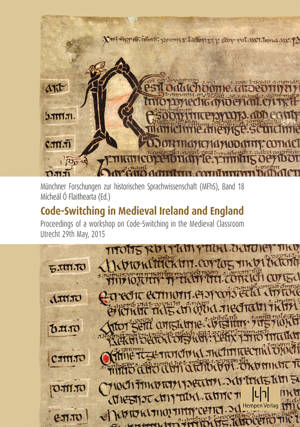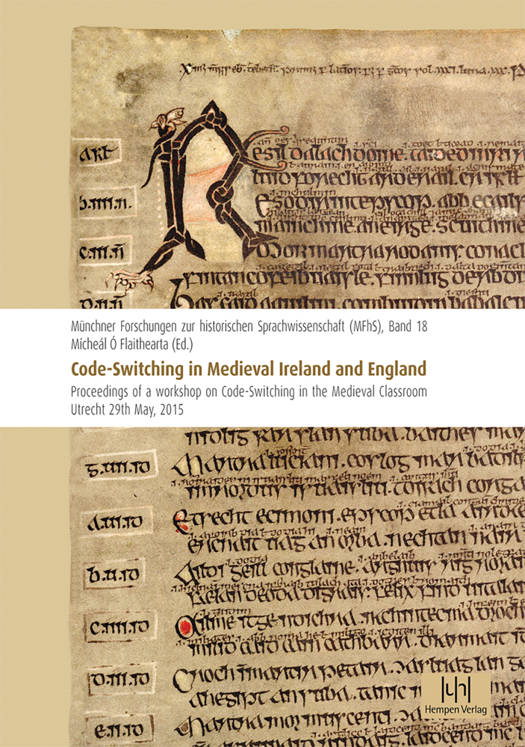
- Afhalen na 1 uur in een winkel met voorraad
- Gratis thuislevering in België vanaf € 30
- Ruim aanbod met 7 miljoen producten
- Afhalen na 1 uur in een winkel met voorraad
- Gratis thuislevering in België vanaf € 30
- Ruim aanbod met 7 miljoen producten
Zoeken
Code-Switching in Medieval Ireland and England
Proceedings of a Workshop on Code-Switching in the Medieval Classroom, Utrecht 29th May, 2015
Hardcover | Engels | Münchner Forschungen zur historischen Sprachwissenschaft MFhS /Munich Studies in Historical Linguistics | nr. 18
€ 44,45
+ 88 punten
Omschrijving
This book comprises the results of the workshop Code-switching in the Medieval classroom, which was held at Utrecht University on May 29th, 2015. The workshop was part of the research project entitled Bilingualism in Medieval Ireland - language choice as part of intellectual culture. The stated aim of the research project as well as of this volume is to open up the rich legacy of bilingual texts from particularly Medieval Ireland to a wider academic audience interested in medieval studies, literacy, bilingualism and code-switching. The papers in this volume contribute to both the debates on medieval reception, medieval elite culture and education, as well as the theories on bilingualism and code-switching by studying the nature and function of Irish-Latin and English-Latin code-switching in a number of medieval text corpora, shedding new light on the way in which clergymen blended indigenous language and culture with late Antique Roman culture that was introduced together with Christianity.
Specificaties
Betrokkenen
- Uitgeverij:
Inhoud
- Aantal bladzijden:
- 134
- Taal:
- Engels
- Reeks:
- Reeksnummer:
- nr. 18
Eigenschappen
- Productcode (EAN):
- 9783944312545
- Verschijningsdatum:
- 1/03/2018
- Uitvoering:
- Hardcover
- Formaat:
- Genaaid
- Afmetingen:
- 170 mm x 240 mm
- Gewicht:
- 385 g

Alleen bij Standaard Boekhandel
+ 88 punten op je klantenkaart van Standaard Boekhandel
Beoordelingen
We publiceren alleen reviews die voldoen aan de voorwaarden voor reviews. Bekijk onze voorwaarden voor reviews.






